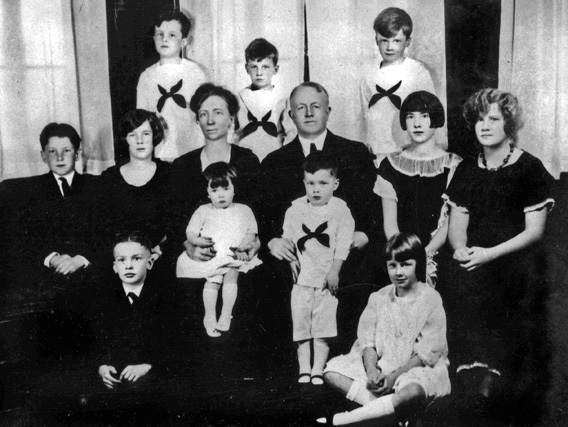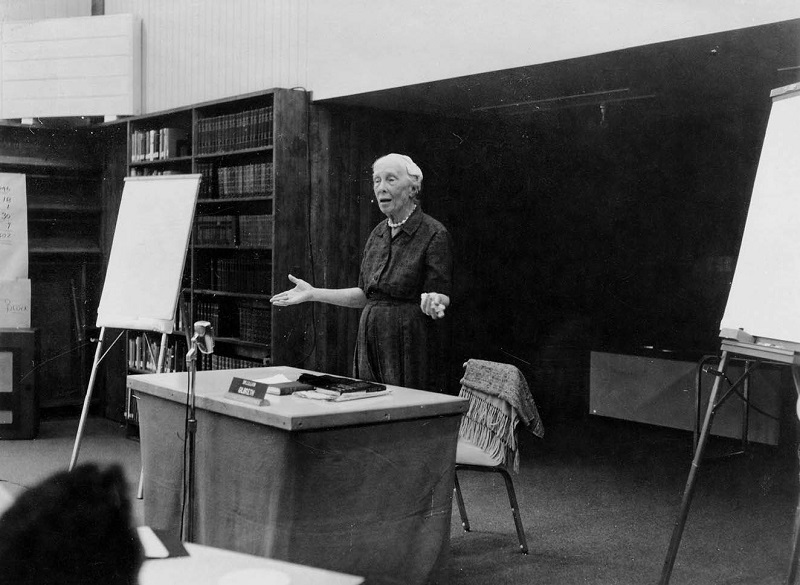ISABEL RUBIO ARROYO | Tungsteno
From the suggestion box to rest periods for employees, these are some of the contributions of engineer and psychologist Lillian Moller Gilbreth to the field of industrial management. In addition to advising several presidents, she is known for some inventions that are now present in millions of households, such as the shelves on the inside of refrigerator doors. We look at how her psychological insights became the basis of modern business management and how her ideas for optimising household management still resonate today.
The mother of modern management
Gilbreth was born in 1878 in Oakland, a Californian city on the eastern side of the San Francisco Bay Area, into a wealthy family of German origin and was educated at home until the age of nine. Although she graduated from high school with straight A's, her father didn’t support her desire to continue her studies; however, she was determined to overcome her father’s opposition. She didn’t want to devote herself exclusively to the home and raising a family, and she went far beyond studying; she ended up becoming one of the first female engineers to obtain a doctorate in psychology.
If Gilbreth has been recognised for anything, it is for her contributions to the field of industrial management. Early in her career, she ran a construction company with her husband. She realised that each engineer had his own way of working—no two used the same method—and concluded that they were approaching their technical problems without taking psychology into account. She set about analysing in detail how each employee moved. She wanted to identify the best movements and find out whether, as well as optimising efficiency, they made them happier. Her goal was to redesign machinery to better adapt it to workers' movements, improve efficiency and reduce fatigue.
A few years later, in 1912, the Gilbreths left the construction business to become management consultants. During this period they implemented some ideas that were very novel for the time, such as a suggestion box for employees, rest periods and process diagrams. They also made a commitment to hire people with disabilities so they could become productive members of the community. As her biographer Edna Yost points out, Gilbreth's legacy lives on in many companies of all sizes.
Lillian Moller Gilbreth was one of the first people to integrate psychology into industrial management concepts. Credit: Purdue Industrial Engineering.
The ideal height for the sink and other appliances
In 1924, Gilbreth's husband died suddenly of a heart attack. For the next 45 years, Lillian would continue to research on her own what psychology could contribute to industrial management. She never forgot the importance of the human factor. During this time, she applied psychology to solve problems in many areas, such as hospitals, the sports industry or kitchen appliance companies.
In addition to working for General Electric, she helped several companies redesign household appliances. Among her most notable inventions were the shelves in refrigerator doors and the pedal-operated rubbish bin. She was concerned about the challenges women faced in running a household, raising a family—she had 12 children—and working outside the home. Her goal was to find the "best way" to do housework. She also interviewed over 4,000 women to design the best height for stoves, sinks and other kitchen fixtures and accessories.

Lillian Moller Gilbreth, who had 12 children, was concerned about the challenges associated with home and parenting. Credit: Purdue University Library.
A role model who advised presidents
Lillian Gilbreth was not alone in adapting scientific-management principles to the home, or in asserting the importance of the psychological impact of work. "Lillian’s work perhaps is better known today than other women who promoted the efficient household because of her association with her husband, but also because she moved among influential people who recognized her work," writes Lisa Nocks, a historian at the IEEE History Center.
This does not prevent Gilbreth, who died at the age of 94, from being a major figure in the fields of industrial and home management. In addition to teaching at various universities, she served on committees appointed by six U.S. presidents. During World War II, she worked as a consultant to the government and oversaw the conversion of factories into military bases and munitions plants. All her ideas and work as an industrial engineer, psychologist and consultant led to many achievements. In addition to receiving dozens of awards and honorary degrees, she became the first woman to be inducted into the US National Academy of Engineering.
· — —
Tungsteno is a journalism laboratory to scan the essence of innovation. Devised by Materia Publicaciones Científicas for Sacyr’s blog.
